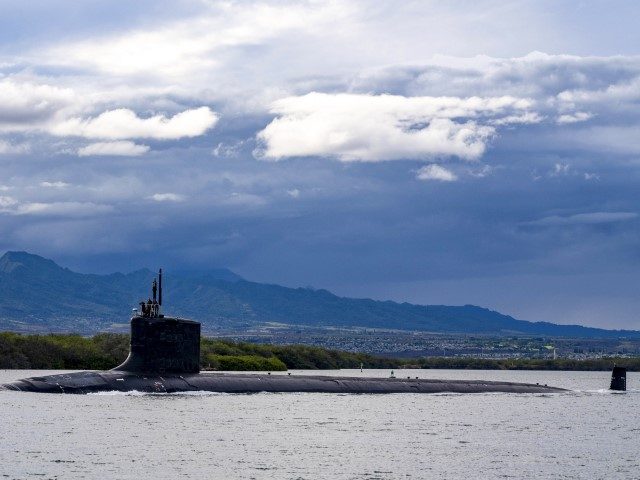A delegation representing South Korean President-elect Yoon Suk-yeol met with U.S. National Security Adviser Jake Sullivan in Washington on Tuesday.
Among the topics of discussion was South Korea’s desire for more American “strategic assets” to be deployed for “strengthening extended deterrence” as tensions with North Korea grow.
North Korea greeted the new government in Seoul by picking a bizarrely vicious fight over a routine speech given by the defense minister from the outgoing administration. Taking point on the hyperbolic North Korean response, dictator Kim Jong-un’s sister Kim Yo-jong threatened to attack Seoul with nuclear weapons on Tuesday.
South Korea is long accustomed to belligerent rhetoric from the psychotic communist tyranny to its north, but the meeting with Sullivan suggests Yoon has real concerns about tensions escalating as he takes office.
Speaking on behalf of the new South Korean president, Rep. Park Jin of Yoon’s People Power Party – a leading candidate for foreign minister in the new administration – conducted the usual pleasantries at the White House before holding what he described as “consultations on ways to enhance the joint defense posture of South Korea and the U.S. and strengthen the U.S. extended deterrence.”
“Deploying strategic assets is an important part of strengthening extended deterrence as I said just now. You may understand South Korea and the U.S. discussed the issue today in that sense,” Park said.
Yonhap News noted “strategic assets” is usually interpreted to mean “formidable military hardware such as nuclear-powered submarines, aircraft carriers and long-range bombers.”
“South Korea’s defense ministry earlier said in a report to President-elect Yoon’s transition team that it plans to hold discussions with the U.S. on the deployment of U.S. strategic assets to South Korea amid growing tensions with North Korea,” Yonhap reported.
After meeting with U.S. Deputy Secretary of State Wendy Sherman, Park said the White House agreed on “the importance of renewed consultative group activities for extended deterrence, which have not been functioning as they should.”
The Moon administration seemingly lost interest in some of the consultations Park referred to, preferring instead to pursue diplomacy with the North Korean regime. Yoon ran on a platform of getting tougher with Pyongyang after Moon’s dovish strategy failed to produce significant results.
Foreign Policy argued in March that Moon’s administration fundamentally misunderstood the nature and objectives of the Kim regime, which wants to absorb or conquer South Korea under the guise of “reunification,” not develop a sustainable peaceful relationship with Seoul.
“Yoon has promised ‘strategic clarity’ in declaring South Korea’s pro-American stance on matters of U.S.-China relations. The president-elect has also spoken of the importance of liberal democracy and human rights in Seoul’s foreign policy,” Foreign Policy added.
If Yoon is truly determined to stand up to China, his determination to secure more American strategic assets should give him an opportunity for defiance very soon. China is reliably infuriated by the deployment of such U.S. assets to South Korea, in part because the Chinese argue that advanced American sensor systems can see past North Korean territory and into China.
Yoon has also promised to resume joint military drills with the United States after Moon reduced them to placate Pyongyang. In fact, Yoon reportedly wants to expand the drills to increase their deterrence value, possibly adding nuclear-capable bombers for the first time in five years.
Park did not directly address those reports at the White House, although he did suggest spring exercises could resume this year.
“We agreed that what’s most important is to maintain deterrence so that we can strongly respond to any possible North Korean provocations,” he said.
“Issues related to North Korea’s nuclear threats, economy security and many other challenges are being presented, and we want to take the comprehensive strategic alliance up a notch to handle these problems together,” Park said.

COMMENTS
Please let us know if you're having issues with commenting.